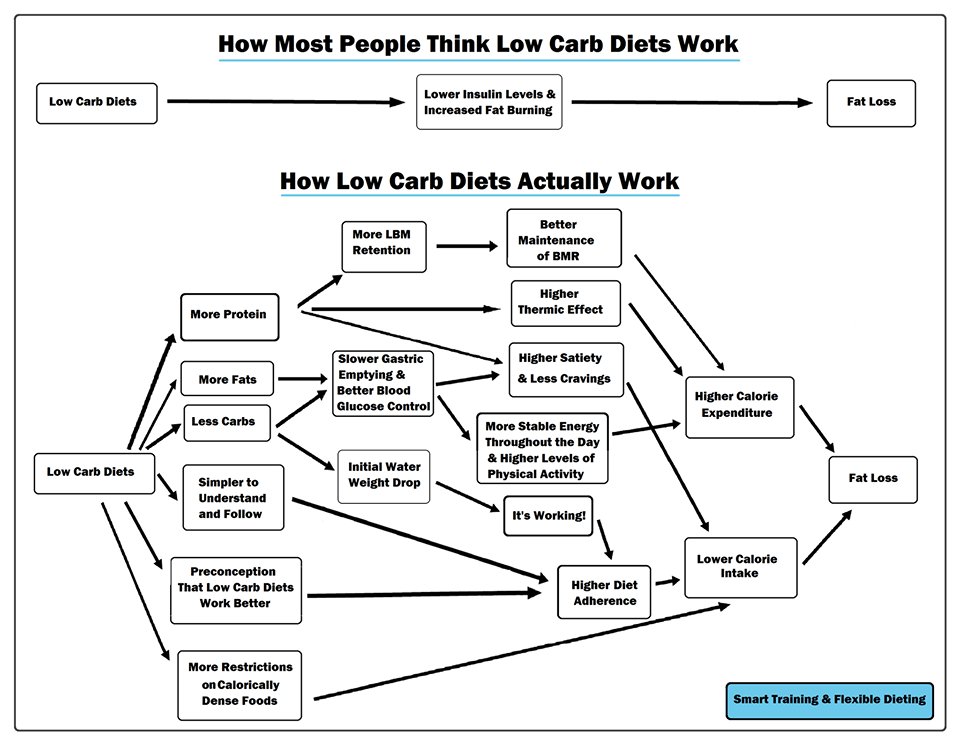twaddle
Thinks s/he gets paid by the post
- Joined
- Jun 16, 2006
- Messages
- 1,703
So I lost weight on a low-carb diet a while back, mostly kept it off for years now, but I like to pretend that any weight I gained back is pure muscle mass. 
I got curious about the mechanisms involved, both for weight loss and for health improvements. I have an old never-used degree in biochemistry, so I like to think I can distinguish between signal and noise, but there is soooo much noise. Sooo much tribalism.
IOW, a good topic for a thread.
What I find interesting and hopeful is that maybe there's some convergence -- some common ground among the tribes. Let's start there:
1) We're starting to understand why being overweight is unhealthy, and BMI is probably not the best metric.
2) Diabetes used to be considered a progressive long-term disease, but now there are multiple ways to reverse it. The hive's mindset has changed and people have connected the dots.
3) The new mindset likes the "personal fat threshold" theory and the multiple data sets that support it: bariatric surgery, very low-calorie diets, and ketogenic diets. So far, nobody has tested low-fat or plant-based diets in this context, but I suspect we'll see that soon.
This is just one of the health improvements we see with weight loss. My conclusion from this and other data is that most of the health improvements I experienced on a low-carb diet were due to fat loss. Specifically due to the reduction in ectopic fat.
That's as large a wall of text as I feel like creating right now.
I got curious about the mechanisms involved, both for weight loss and for health improvements. I have an old never-used degree in biochemistry, so I like to think I can distinguish between signal and noise, but there is soooo much noise. Sooo much tribalism.
IOW, a good topic for a thread.
What I find interesting and hopeful is that maybe there's some convergence -- some common ground among the tribes. Let's start there:
1) We're starting to understand why being overweight is unhealthy, and BMI is probably not the best metric.
2) Diabetes used to be considered a progressive long-term disease, but now there are multiple ways to reverse it. The hive's mindset has changed and people have connected the dots.
3) The new mindset likes the "personal fat threshold" theory and the multiple data sets that support it: bariatric surgery, very low-calorie diets, and ketogenic diets. So far, nobody has tested low-fat or plant-based diets in this context, but I suspect we'll see that soon.
This is just one of the health improvements we see with weight loss. My conclusion from this and other data is that most of the health improvements I experienced on a low-carb diet were due to fat loss. Specifically due to the reduction in ectopic fat.
That's as large a wall of text as I feel like creating right now.
Last edited:

